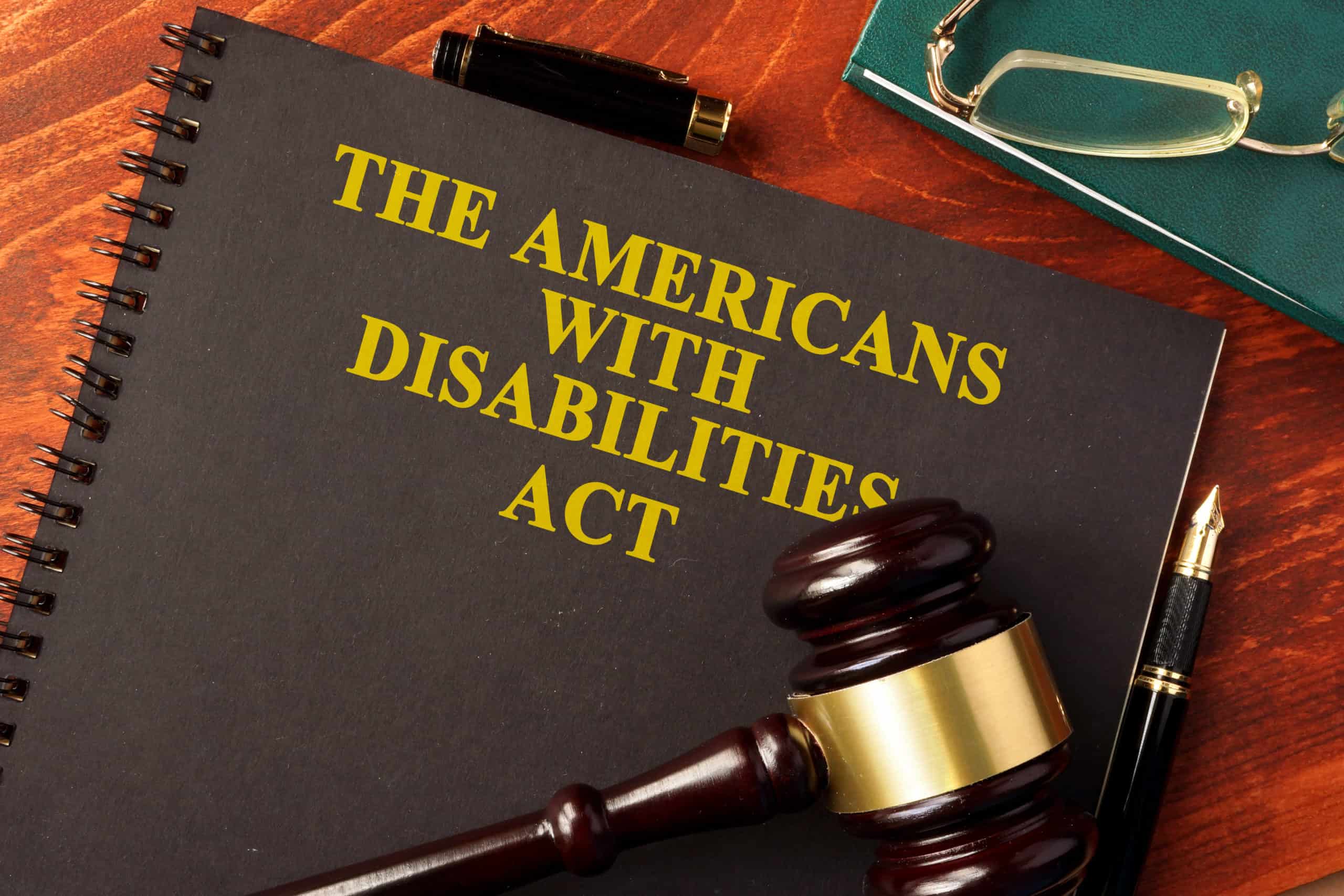The Americans with Disabilities Act (ADA) of 1990 is a civil rights law prohibiting discrimination against disabled individuals in every aspect of public life. The ADA affords individuals with disabilities access to employment, education, transportation, state and government services, telecommunications, and locations available to the general public. The ADA is organized into five sections, each pertaining to a different area of public life.
Titles I-III
Title I addresses employment. Title I requires employers to provide qualified candidates with reasonable accommodations based upon the nature of their disability. A reasonable accommodation is a modification enabling a disabled person to apply for or perform the job in question. Employers with 15 or more employees are subject to Title I, which is enforced by the U.S. Equal Employment Opportunity Commission.
Title II prohibits discrimination against disabled individuals in relation to public services. Title II protects the rights of disabled people to have access to state and local governments, their agencies, and the programs and services they provide all Americans. Title II also gives disabled persons access to any transportation systems that receive government funding. The U.S. Department of Justice regulates and enforces Title II.
Title III protects disabled individuals from being denied access to all private places of public accommodation. That includes privately-owned, operated, or leased places like stores, hotels, restaurants, health clubs, sports facilities, theaters, etc. Title III also establishes standards for modifying locations or constructing new facilities to accommodate disabled visitors and patrons. This Title requires businesses to make “reasonable accommodations” to effectively communicate with customers with vision, hearing, or speech disabilities.
Titles IV and V
Title IV requires companies providing telephone and internet services to offer specialized services that allow disabled individuals to communicate over the phone. Title IV also requires federally funded public announcements to be closed captioned for the hearing-impaired. The Federal Communication Commission regulates this Title.
Title V addresses a multitude of discrimination issues relating to the entire ADA. This “miscellaneous” Title regulates how the ADA relates to other laws, how insurance providers and the benefits they offer are impacted by the ADA, and prevents retaliation against disabled individuals. Title V also details the conditions that are not considered disabilities under the law.
Philadelphia Discrimination Lawyers at The Gold Law Firm P.C. Fight Disability Discrimination
Disabled individuals have the right to work like every other American. Employers are required to provide reasonable accommodations that enable disabled employees the chance to earn a living. When an employer violates the civil rights of disabled workers, Philadelphia employment lawyers at The Gold Law Firm P.C. hold them accountable. Focused on every aspect of employment law, Sidney L. Gold protects disabled workers from retaliation or termination when employers are in violation of the ADA. Call our Center City Philadelphia office at 215-569-1999 or contact us online if you suspect you are being discriminated against because of a disability.



































